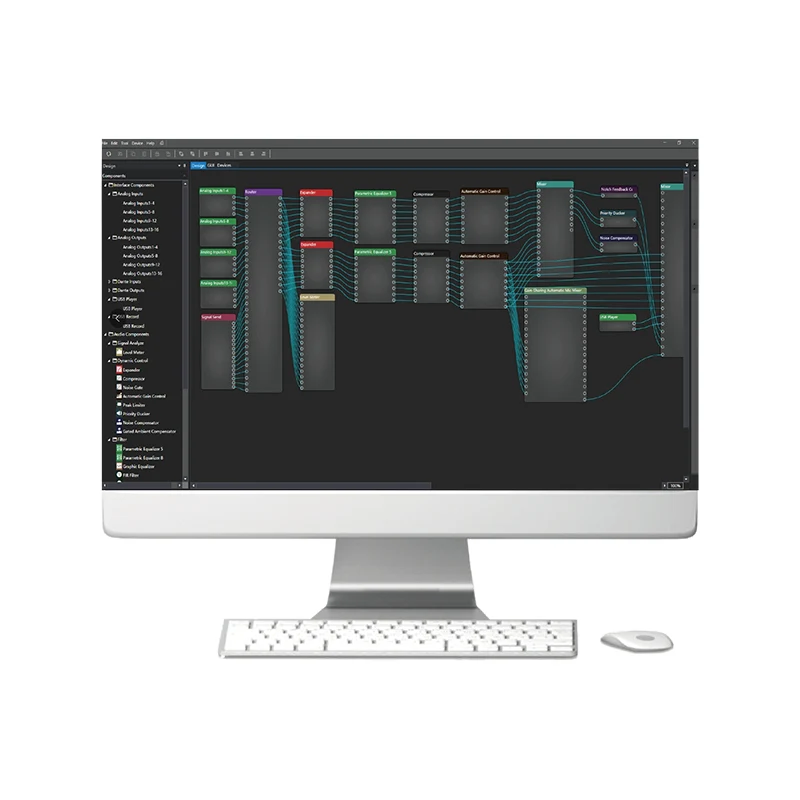What is Dante in the audio world?
2025-05-20
In the audio world, Dante (short for Digital Audio Network Through Ethernet) is a digital audio networking technology developed by Audinate. It allows users to send and receive uncompressed, multi-channel digital audio over standard Ethernet networks with low latency and perfect synchronization.
What Dante Is:
Dante is a protocol and system that enables audio equipment (like mixers, amplifiers, microphones, and computers) to communicate digitally over a local area network (LAN) using standard IP infrastructure — no special cabling or point-to-point wiring is required.

What Makes Dante Special:
Uncompressed Digital Audio: Sends up to hundreds of channels of high-resolution audio (typically 24-bit/48 kHz or higher).
Low Latency: Typical latency is around 0.25 to 1 millisecond, making it suitable for live and critical applications.
Automatic Device Discovery: Devices on a Dante network automatically recognize each other, simplifying setup.
High Channel Count: A single gigabit Ethernet link can carry hundreds of audio channels simultaneously.
Clock Synchronization: Uses Precision Time Protocol (PTP) to synchronize devices with sub-microsecond accuracy.
Flexible Routing: You can route audio from any device to any other using software (Dante Controller) — no patch bays required.
Where Dante Is Used:
Live Sound and Touring
Broadcast and TV Studios
Recording Studios
Corporate AV Systems
Theaters and Performing Arts Venues
Educational Institutions
Houses of Worship
Software Tools in Dante Ecosystem:
Dante Controller: A free software tool to route audio and manage devices.
Dante Virtual Soundcard: Turns a computer’s Ethernet port into a multichannel audio interface.
Dante Via: Enables routing of audio from software apps and devices (like USB mics) into the Dante network.
Why It Matters:
Before Dante, digital audio transport required complex, point-to-point connections using proprietary protocols. Dante standardizes and simplifies this using common networking gear, drastically reducing cabling, setup time, and cost, while increasing flexibility and scalability.
In short:
Dante is the backbone of modern digital audio networks, making professional-grade audio distribution fast, flexible, and efficient — all over standard Ethernet.


